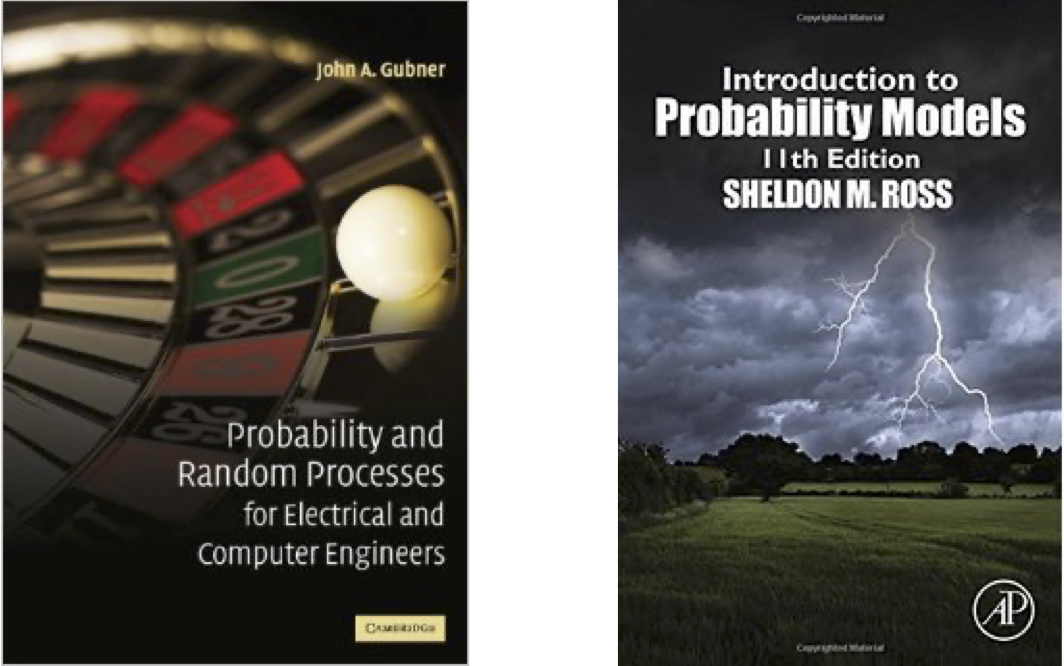ECSE 6510 Introduction to Stochastic Signal and Systems
 |
Course Information
Meeting Times: Tue Fri: 10:00 AM - 11:20 AM
Classroom: JEC 4104
Instructor: Tianyi Chen; Office Hours: Tuesdays at 6 pm – 8 pm
Course Description
This course introduces probability from an axiomatic and measure-theoretic perspective with applications in data mining, machine learning, communication and signal processing. The course covers concepts of stochastic processes, strict/wide sense stationarity, ergodicity, spectral decomposition, Poisson processes, Markov processes, and other topics.
Prerequisites
ESCE-2410: Signals and Systems (or equivalent), and, ESCE-2500: Engineering Probability (or equivalent).
Student Learning Outcomes
1. Have a good understanding of the theory of probability and stochastic processes;
2. Be able to apply stochastic process theory to model engineering systems;
3. Be able to evaluate the performance of engineering systems with uncertainty.
Grading Criteria
Homework Assignments: total 8, 32%
Term Exams: total 2, 32% + 32%
Class attendance: 4%
Gradescope: We will use Gradescope to collect homework submissions. The TA will manually grade your submission, and you will receive feedback explaining your final marks.
Optional References
1. John A. Gubner, "Probability and Random Processes for Electrical and Computer Engineers", Cambridge University Press, 2002;
2. Bruce Hajek, “Random Processes for Engineers,” Cambridge University Press, 2015;
3. Sheldon Ross, “Stochastic Processes,” Wiley, 1995.
Course Content
1. Review of Probability Axioms and Random Variable
2. Convergence and limit theorems
3. Stochastic Processes
4. Markov Chains, Random Walks
5. Poisson, Wiener and Markov Processes
6. Stationary Processes
7. Ergodic theory
8. Autocorrelation
9. Spectral Density
10. Cyclo-stationary Processes
11. Effect of filtering of stochastic processes
12. Karhunen-Loeve Expansion*
13. Applications in Machine Learning, Signal Processing and Communications
-
1) Web search and Google’s PageRank
2) Principal component analysis
3) Queuing systems
4) Communication systems